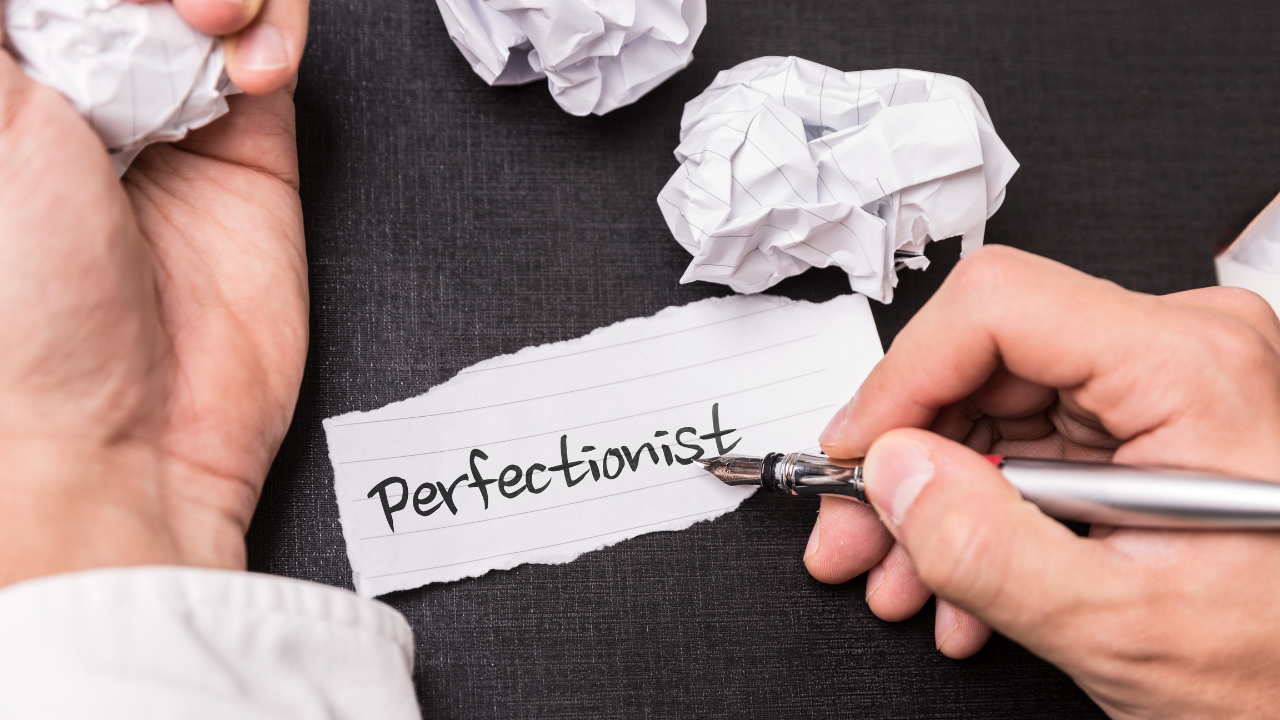Why Survivors Can Become Perfectionists

Perfectionism and shame are two sides of the same coin. People strive to be perfect because of their shame and then feel even more shame because they are never able to reach perfection. It is an endless cycle, exhausting and terrible, and one that takes us out of reality.
This is why perfectionism and shame are the “terrible twins” of trauma. Perfectionists are hiding something, whether that be trauma, an imperfection, insecurity, or an old belief about themselves. If they weren’t, they wouldn’t be so hard on themselves and everyone else.
And it isn’t out of logical judgments and criticisms. It’s fear. Perfectionism is a defense, a way to feel safe and attempt to prevent bad things from happening. When childhood trauma happens, the child automatically decides that the bad thing only happened because he/she was bad and deserving of it. Something he/she did or something he/she is brought on the bad things. This is a logical response to trauma at a young age because we are born needing to rely on adults and view them as perfect caretakers. We are completely reliant on adults for survival and so we lack the ability and logic to question them. So if it was our fault, we have to figure out a way to act that reduces the risk of the trauma happening again, becoming so perfect that no one can ever criticize, judge, or find a flaw worth hurting us for. And so we become adults that believe that it was our fault we were hurt and that we have to be perfect to be safe.
But this doesn’t reflect reality. Not only is it not our fault that bad things happened to us but being perfect isn’t possible. It isn’t human. And being perfect is not the answer to creating safety. In fact, it prevents us from ever feeling safe because it is a destination we can never reach, thus creating a life in which we work tirelessly for a result we never achieve. We never actually feel safe and never rid ourselves of the shame of being unable to achieve perfection.
But being imperfect is a good thing. It’s normal. It’s real life. But perfectionists can’t see this. They’re trapped on the hamster wheel of perfectionism. It’s an endless cycle as exhausting for everyone in their lives as it is for them.
Victims of childhood abuse work especially hard to be perfect. Because you blame yourself for what happened and sell your soul to keep that shameful secret, you believe to your core that if you push yourself to be better and better, you will be loved and protected. That you can’t be worthy of love unless you are perfect. You become the perfect student, the perfect athlete, the perfect artist, the perfect employee, the perfect son/daughter, the perfect partner, the perfect friend. And then you apply those standards to the people around you, because if they aren’t perfect, then they aren’t safe either. Your inner child believes it’s the only way to stop the abuse from happening again.
But it’s not. Instead, you forget who you are. You forget who you used to be before the abuse. You forget what made you uniquely you, faults and all, and the wishes and desires you had living out of that authentic self. There’s so much more to you than how well you can perform to please others. There’s a valuable, creative, loving person inside you who longs to be genuine.
That is what your healing journey will ask of you, to shed this perfectionist self that doesn’t actually reflect who you truly are. To realize that you didn’t do anything wrong as a child and you were born perfect as you are. To see that you never deserved the abuse and nothing you ever do in life will make you deserving of abuse. And that happiness comes from a life lived honestly, lived through the truth of who you are, human, imperfect, and born worthy of love no matter how imperfect you are.
Shed the mask of perfection and the heavy, impossible burden it takes to maintain it, and let yourself be free to be you, the real you. Risk being vulnerable, share your struggles and pain, and give yourself permission to ask for help and support. You will soon see that every single person is also struggling with this and you will find community in this journey we all take towards accepting who we are and accepting the irrefutable fact that we are imperfect...that those imperfections, coupled with our best parts, are what make us unlike anyone else. And that is something to be grateful for.
Ready to start your healing journey? Not sure where to begin? Don’t worry, I can help! Just follow (this link) or call 619-889-6366 to reserve a one-hour coaching session with me ($175). Let me help you understand the impact of trauma and how to start your healing journey. You deserve it! Reserve your spot NOW!
Have you read my new book, "Releasing Your Authentic Self?" If you're ready to do the deep, hard work of emotional healing, this book is for YOU! You’ll find it at Amazon in paperback (link) or Kindle (link). Enjoy and happy reading!
Are you looking for more support? I have created a closed Facebook group for the readers of "Releasing Your Authentic Self." If you are ready to dig deep and want to experience the daily support and encouragement from others like you, follow this link to learn more: Releasing Your Authentic Self Support Group.
Stay connected with news and updates!
Stay connected with news and updates!
Are you on my email list? Email list subscribers receive an email with a link to my weekly blog post and occasional special offers. If you’d like to subscribe, click below!